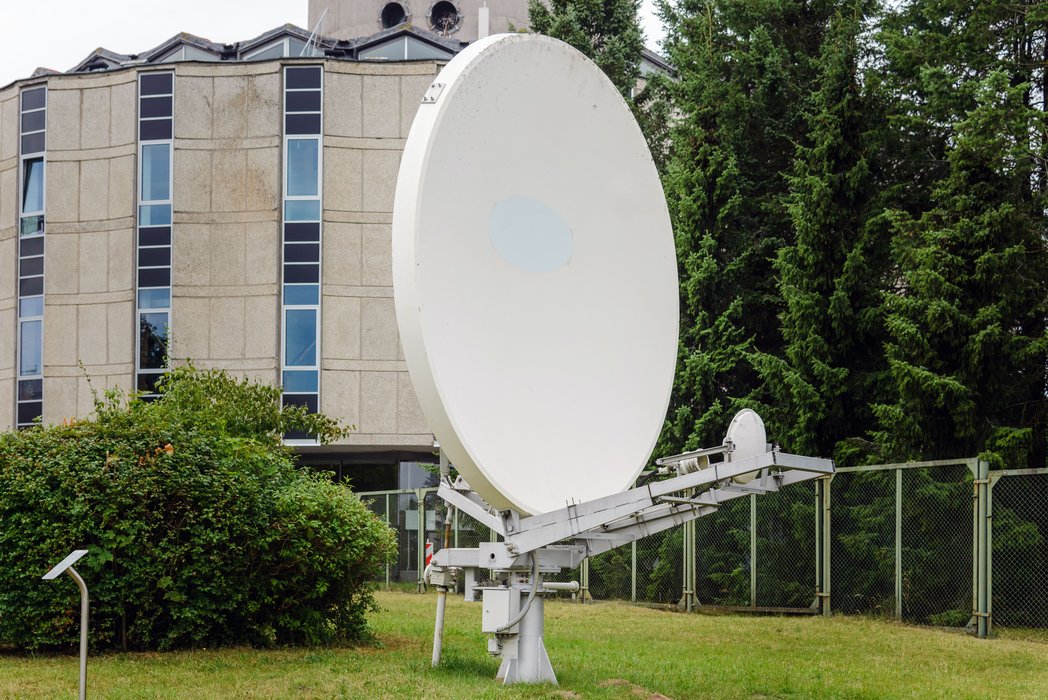
Arvydas Lakacauskas
Tensions between Lithuania and Russia remain high. In May 2024, Lithuanian authorities attributed an arson attack on a Vilnius Ikea store to Russian military intelligence and called it an act of terrorism. The suspect, a Ukrainian national, allegedly planned further attacks in Latvia. Lithuania also reports persistent espionage from Belarus, which many analysts view as a “puppet state” of Russia, including the 2023 arrest of two Lithuanians accused of spying on NATO targets. In response, Lithuania has tightened travel rules for Belarusian migrants, sparking domestic debate. In addition, on 19th May 2025, Lithuania filed a case at the International Court of Justice, accusing Belarus of orchestrating the smuggling of migrants into Lithuanian territory, alleging violations of international law. In late May 2025, Germany deployed permanent troops to Lithuania to assist in the country’s defence and protect NATO’s borders from potential Russian aggression.
OVER 1000 PUSHBACKS AT THE LITHUANIAN BORDER IN 2024, ECHR INITIATES HEARING
In February 2025, a report titled “Pushed, Beaten, Left to Die” was published by a coalition of NGOs, documenting pushbacks across Europe in 2024. Among other findings, it detailed incidents at the border between Belarus and the European Union.
The report recorded 1,002 pushbacks at the Belarus–Lithuania border and documented violence by Lithuanian border guards. It also echoed concerns raised by the UNHCR in September 2024, which criticised Lithuanian legislation that permits pushbacks under a declared state of emergency and denies individuals the right to seek asylum.
On 12th February 2025, the European Court of Human Rights (ECHR) began hearings on cases involving Latvia, Lithuania, and Poland. No judgment has been made public to date.
LITHUANIA FACES CLASS ACTION LAWSUIT OVER ALLEGED ARBITRARY DETENTION OF ASYLUM SEEKERS
A group of 24 asylum seekers is taking the Lithuanian state to court in a landmark class action lawsuit, supported by Amnesty International and the law firm ReLex. On 12th March 2025, Lithuania’s Supreme Administrative Court ruled the case admissible, meaning a lower court must now examine whether the state is responsible for arbitrarily detaining these individuals and if it must pay compensation.
The case stems from events between 2021 and 2022, when at least 4,000 people who entered Lithuania from Belarus to seek asylum were automatically detained without access to legal remedies. In 2023, Lithuania’s Constitutional Court ruled that the legal provisions used to justify these detentions violated the national constitution. The class action lawsuit filed in June 2024 is the first of its kind and is also open to other affected asylum seekers, who Amnesty International has asked to apply to join by 10th June 2025.
CONSTITUTIONAL COURT ALLOWS FOR THE REGISTRATION OF SAME-SEX PARTNERSHIPS
On 17th April 2025, the Lithuanian Constitutional Court ruled that the lack of legal recognition for same-sex partnerships violates the Constitution. Following the ruling, same-sex couples can apply to the court to have their partnerships officially registered. The next step lies with parliament, which is responsible for implementing the court’s decision. However, there are concerns that no proposed bill will gain sufficient political support.
On 27th April 2025, thousands of people gathered in Vilnius to demonstrate against a proposed property tax. The proposal provides for half of the proceeds to go to a national defence fund and the other half to be allocated to municipal budgets. During the event, the organisers collected signatures to reject the tax in parliament.
Vilnius police estimated the turnout at between 4,000 and 4,500 people and noted the peaceful nature of the demonstration. A similar protest took place in 2023 in response to an earlier tax proposal from the previous government.
WOMEN’S DAY MARKED BY SUPPORT FOR VICTIMS OF ABUSE AND SOLIDARITY WITH UKRAINIAN WOMEN
On International Women’s Day, 8th March 2025, a rally and march were held in Vilnius in support of women affected by abuse and violence. Organisers highlighted how political instability and the climate crisis are exacerbating existing inequality and increasing the scale of violence and sexual exploitation.
Separately, hundreds of women gathered outside the Ukrainian Embassy in Vilnius to express solidarity with Ukrainian women amid Russia’s ongoing war against Ukraine.
DEMONSTRATIONS CALL TO END LITHUANIA’S SILENCE ON PALESTINE
On 22nd March 2025, around 30 people took part in a pro-Palestine demonstration in central Vilnius, criticising the Lithuanian government’s support for Israel and expressing solidarity with the Palestinian people. Protesters held banners reading “Let Gaza live”, “Stop genocide”, and “Our partisans were also terrorists to the Russians”.
Outside the Presidential Palace, a separate group of 20 people gathered with similar demands. Organiser Andrius Mažeika, co-founder of the website palestina.lt, said the aim was to break Lithuania’s silence on the issue. Protesters drew parallels between the conflicts in Gaza and Ukraine, calling for the Lithuanian government to treat Israel as it treats Russia.
THIRD PROTEST AGAINST RISING COST OF PUBLIC TRANSPORT
On 5th April 2025, a third protest against the rising cost of public transport tickets took place in front of the Vilnius Municipality. The demonstration also showed support for the opposition’s proposal to revoke the fare increases. It was organised by Fridays for Future Lithuania, Extinction Rebellion Lithuania, and the May 1st Trade Union. Similar protests were held in January and March.
In response to public discontent, the mayor of Vilnius has revised the proposal, announcing plans to reinstate the 30-minute ticket. However, this change would still involve a price increase.
Lithuania has dropped one position to 14th in the 2025 World Press Freedom Index, published by Reporters Without Borders (RSF) in May 2025. RSF cited persistent legal ambiguity, financial instability in local media, and increasingly strained relations between the government and the press.
Although journalists operate in a generally favourable environment, RSF warned of limited access to state-held information and inadequate legal protection of press freedom. Political interference was relatively rare during the reporting period, but the LRT Council failed to fully shield the public broadcaster from political pressure.
The report acknowledged recent reforms, such as the Media Support Fund, as positive steps to address economic challenges. While journalists are broadly respected, some continue to self-censor on sensitive issues such as history and gender.
JOURNALISTS’ ORGANISATIONS EXPRESS CONCERNS ABOUT ‘POLITICAL NEUTRALITY AUDIT’ OF PUBLIC BROADCASTER LRT
In February 2025, several journalistic organisations raised concerns about a planned ‘political neutrality’ audit by the supervisory body of Lithuanian National Radio and Television (LRT). The audit aims to assess whether LRT journalists are complying with political neutrality principles in their reporting. Many fear the initiative will undermine editorial independence and encourage self-censorship.
The International Press Institute (IPI) criticised the audit, citing a lack of professional justification. According to the IPI, “the existing self-regulatory mechanisms and oversight bodies in place at LRT are more than sufficient for upholding professional standards.” The organisation also raised concerns over a 20th February 2025 meeting between the LRT Council and LRT journalists, noting that council members who had initiated and supported the audit failed to attend — a move seen as undermining transparency.
In a related development, in April 2025 the Lithuanian parliament instructed the National Audit Office to carry out a comprehensive audit of LRT by November 2025, covering the years 2021–2024. The audit will evaluate LRT’s transparency, efficiency, and political neutrality, among other factors.
LRT’s director warned that this marks a major shift, as the review will also examine the broadcaster’s mission, funding, and governance. The decision followed the appointment of presidential adviser Irena Segalovičienė to head the Audit Office. In response, LRT’s internal audit chief resigned.
NEMUNAS DAWN PARTY LEADER DISCREDITS LRT, CALLS FOR INTRODUCING “FOREIGN AGENT LAW”
On 5th March 2025, Remigijus Žemaitaitis, leader of the Nemuno Aušra (Nemunas Dawn) party, which is part of Lithuania’s ruling coalition, posted on Facebook criticising Lithuanian National Radio and Television (LRT) for receiving USAID funding. Sharing screenshots of grants awarded to LRT and its partner organisations, he described the funding as “money for brainwashing” and called for the introduction of a “foreign agent” law. The post received nearly 2,000 likes and was widely shared.
The incident was reported to the Media Freedom Rapid Response (MFRR) mechanism. According to MFRR, LRT later received a formal request from an MP of the Lithuanian Peasants and Greens Union to disclose all foreign assistance grants received since 2020, including those from USAID, the EU, and other sources. The incident adds to broader regional concerns about political efforts to restrict foreign-funded media, with “foreign agent laws” recently proposed and introduced in countries such as Hungary, Georgia, Bosnia and Herzegovina and others.
As previously reported by the CIVICUS Monitor, the coalition agreement between the Social Democratic Party (LSDP) and Nemunas Dawn following elections in October 2024 was a subject of controversy, as the LSDP had pledged during the election to keep Nemunas Dawn out of government. Žemaitaitis was previously found by the Constitutional Court to have violated his oath of office over antisemitic remarks (see previous CIVICUS Monitor update), though he denies these charges.
